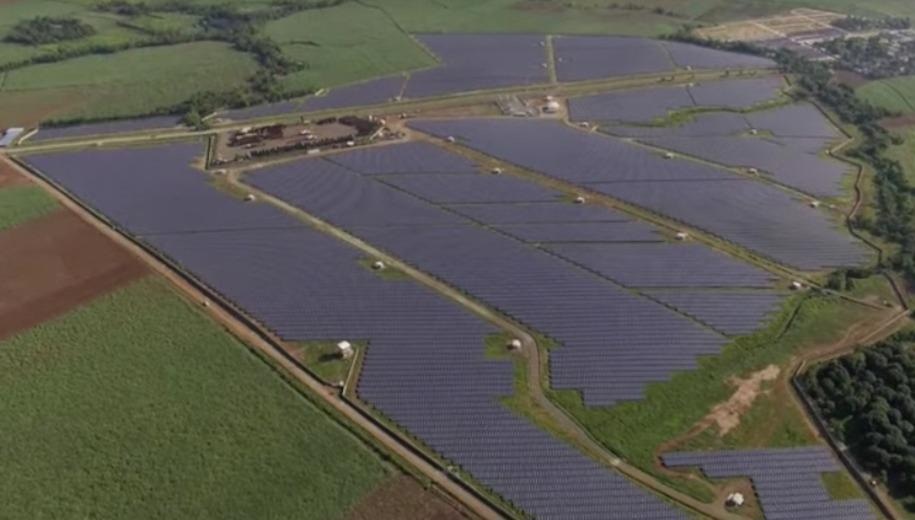Dec 23 2020
According to a new report by the US-based Institute for Energy Economics and Financial Analysis (IEEFA), in small islands and isolated areas of the Philippines a shift toward renewables can offer economical, reliable energy to over half of the population or about 50 million people.
 islaSol II, a photovoltaic power station located in Negros Occidental, a province in the Philippines. A new report urges the Philippines to shift from diesel to renewable energy to save money. Image Credit: Kanadaurlauber.
islaSol II, a photovoltaic power station located in Negros Occidental, a province in the Philippines. A new report urges the Philippines to shift from diesel to renewable energy to save money. Image Credit: Kanadaurlauber.
“Access to reliable electricity is an important input to ensure healthcare and food supply through cold storage of medication and food produce or fish,” stated Sara Ahmed, author of the report.
Published very recently, the report notes that if the government-owned National Power Corporation’s Small Power Utilities Group (NPC-SPUG) changes away from subsidized diesel power—broadly utilized in isolated islands and remote areas—the savings could be around US$275 million annually.
“It is important to note that the repeated argument of limited absorptive capacity versus renewable energy sources do not apply to hybrid power systems, where diesel and PV (photovoltaic) or wind power are designed to complement each other,” notes the report.
“Ongoing cost and efficiency improvements for renewables will mean that renewable energy cost deflation will enable the government to reach its goal of 100 per cent electrification by 2022,” it also added.
According to Ahmed, “The expertise of the Department of Finance, whose secretary is the chair-designate of the Climate Change Commission, the ex-officio chairman of NPC, can help the NPC-SPUG provide not only clean, but also reliable, secure and affordable power for residents of small island grids.”
Renato Redentor Constantino, executive director of the Institute for Climate and Sustainable Cities, a climate and energy policy group based in the Philippines, proposes statutory clauses in power contracts that are in favor of renewables.
It’s time for the energy regulatory commission to abolish automatic pass-through provisions in power supply agreements that allow fossil generators to bid ultra-cheap in the first year then automatically pass on price and forex fluctuation risks to the consumer, which distorts the market.
Renato Redentor Constantino, Institute for Climate and Sustainable Cities
Since customers benefit from decreased subsidies to small island grids, the electric cooperatives must get a share of the proceeds to enable them to upgrade their systems and train workers to adopt the latest, climate-friendly economy, stated Constantino. “Doing so saves a fortune in avoiding more importations of expensive diesel.”
The report offered many suggestions, one of which is to stop new diesel power investments instantly and expedite hybridization—where diesel generators work alongside renewable energy sources.
Another crucial suggestion is to divert electrification subsidies toward investments in renewable energy instead of diesel-generated power.
These recommendations are not only realistic, they need to be implemented with speed and a greater sense of inclusivity and urgency.
Renato Redentor Constantino, Institute for Climate and Sustainable Cities